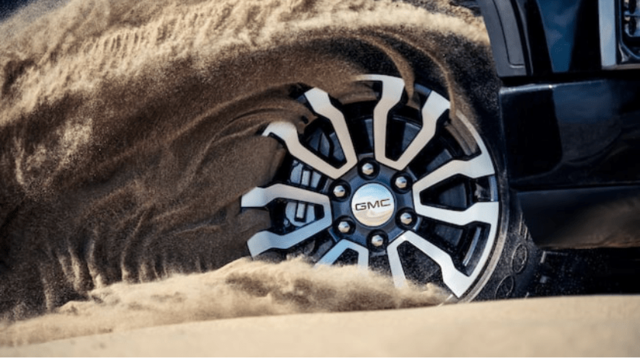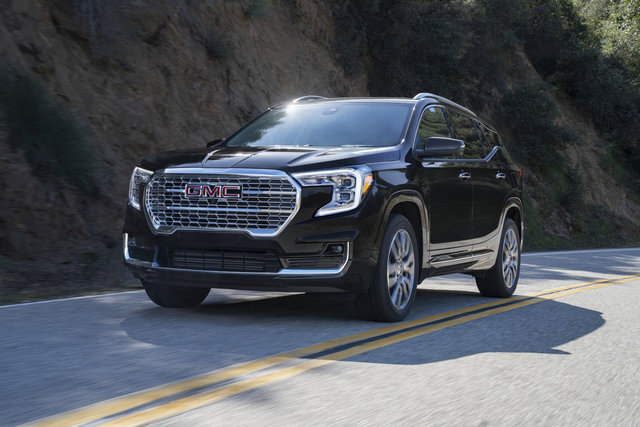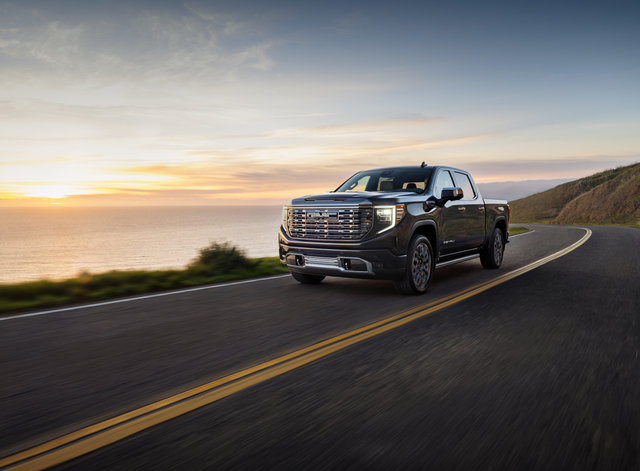In the competitive world of compact SUVs, the 2024 GMC Terrain and the 2024 Mitsubishi Eclipse Cross stand out as prominent contenders. However, a closer examination reveals that the Terrain offers some distinct advantages that set it apart. This article delves into the specifics, comparing the two models in terms of engine performance, fuel efficiency, interior and cargo space. A More Powerful...

The travel life of a tire is finite, and flats happen. In either case when it comes time to trade out your old tires for fresh tread, you have several options in terms of the basic types of tires available for your vehicle.
ALL-SEASON TIRES
Rain or shine, all-season tires are designed for year-round use, and feature a blend of rubber compounds and detailed tread configurations that are designed to offer well-rounded performance in most driving conditions. All-season tires offer good overall performance on most road surfaces and in most weather conditions.
ALL-TERRAIN TIRES
All-terrain tires are designed to carry you from the asphalt streets to the loose surfaces encountered off road. The aggressive tread pattern often found on all-terrain tires helps optimize traction off-road – but they can wear more quickly than a typical all-season tire. As such, consider rotating them more frequently than the standard 7,500-mile interval, especially if you notice irregular wear.
RUN-FLAT TIRES
Run-flat tires can give you more confidence in the event of a flat, as they’re designed to be temporarily driven at limited speeds for a limited distance after a breach. Remember to adhere to the specific instructions for your tire and vehicle, and limit both your speed (usually no faster than 50 mph) and distance as instructed.
PERFORMANCE/ SUMMER-ONLY TIRES
When the warmer months hit, the weather heats up, and rainfall accumulates. Performance and summer-only tires feature special tread patterns and rubber compounds – and, occasionally, a lower aspect ratio – that optimize the tire for maximum dry- and wet-road performance. It is extremely important to remember that the compound and tread used in these tires makes them unsuitable for use in cold climates, and on ice and snow, and would require switching to an appropriate tire for those situations.
NOTE: Do not use summer tires in winter conditions, as it would adversely affect vehicle safety, performance and durability. Use only GM-approved tire and wheel combinations. Unapproved combinations may change the vehicle’s performance. Learn more about important tire and wheel information from our Certified Service Experts.
SNOW/ WINTER TIRES
Winter tires are designed for increased traction in cold weather, along with snow- and ice-covered roads. It’s important to remember that winter tires can suffer from decreased dry-road traction, increased road noise, and shorter tread life. You should also watch for changes in your vehicle’s handling and braking, as they can become more sensitive.
KICK OFF YOUR CUSTOMIZATION
Now that you know which type of tire may suite your driving needs, make sure to visit our Certified Service Experts so you can be certain your tires are safely outfitted for your purposes.
Other Articles That May Interest You
General Motors takes a significant step forward in enhancing the safety and connectivity of its vehicles. Starting with the 2025 models, GM will be integrating OnStar's most in-demand features as standard offerings across the Chevrolet, Buick, GMC, and Cadillac brands. This move is set to redefine the industry's standards for vehicle safety and technological integration, bringing a new level of...
The full-size truck market is fiercely competitive, with the GMC Sierra 2024 stepping into battle against the Toyota Tundra 2024. Let's take a moment to compare these models on several crucial aspects: mechanical performance, towing capacity, interior finishes, and available passenger space. Mechanical Power Comparison The GMC Sierra commands the scene in 2024 with mechanical offerings that...




